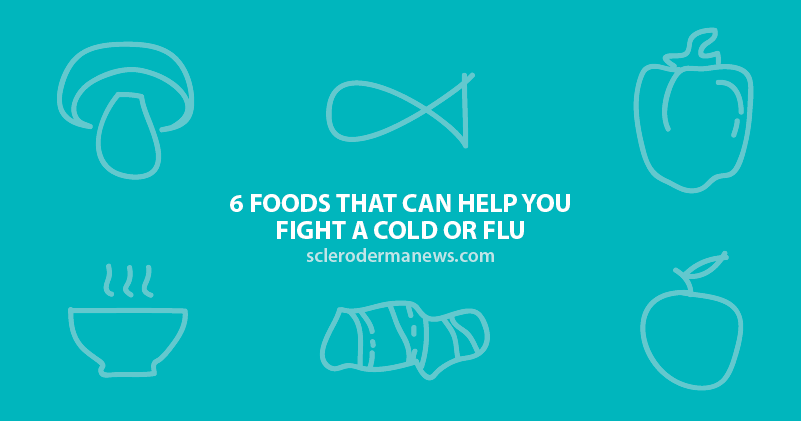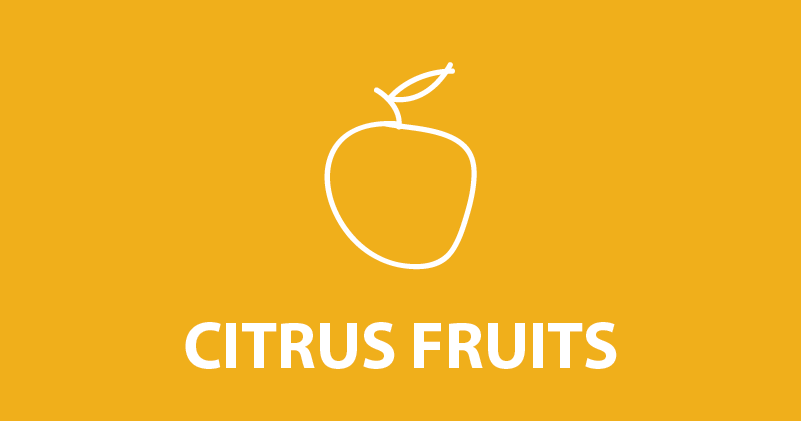6 Foods That Can Help You Fight a Cold or Flu
Written by |

Winter is a perilous time if you have a compromised immune system, but you can’t stay alone inside for four months. You have to get on with your daily life, and just hope you don’t succumb to other people’s bugs and illnesses.
However, there are some foods that can help you avoid catching a cold in the first place and lessen the symptoms if you do. We’ve put together a list of seven foods that are known for their cold-busting properties with help from livestrong.com.

Oily Fish
Everyone knows that omega-3 found in oily fish such as sardines, mackerel, and salmon is good for the heart and the brain, but did you know that omega-3 also helps immune cells function? As well as omega-3, oily fish also contains protein, calcium and vitamin D.
Discover seven health benefits of vitamin D.

Yellow Bell Peppers
Yellow bell peppers contain high levels of vitamin C, which is well known for helping people reduce the symptoms of winter bugs and reducing the duration of the illness. Yellow peppers can be eaten raw as a salad ingredient or added to cooked dishes.
Find out more about foods that can benefit scleroderma patients.

Mushrooms
Keep a ready supply of mushrooms over the winter as these fungi are loaded with selenium, B vitamins, and antioxidants. Asian varieties such as shiitake and maitake have even more nutrients to help you prevent coughs and colds this winter. Mushrooms are incredibly versatile cooking ingredients and can be added to soups, casseroles, stir-fries, and pasta dishes.
A frequent cough could affect the severity of GERD and ILD in scleroderma patients. Find out more.

Chicken Soup
Chicken soup also known affectionately as “mama’s penicillin” has long been touted as a dish to be served when you’re ill and not without reason. The chicken broth will help to thin mucus, easing sinus pain, and it can also soothe sore throats—as long as you don’t drink it too hot!
Add some other cold-busting ingredients such as mushrooms and peppers to make it extra healthy.
Discover six tips for eating well with scleroderma.

Citrus Fruits
Citrus fruits are bursting with vitamin C. A medium-sized orange can provide you with 117 percent of your recommended daily intake which will help you fight off free radicals. But don’t forget the peel! That’s where a lot of the vitamin C is contained. For an added zing, add grated orange, lemon and lime zest into various dishes.
Discover some tips for making remedies that might help with scleroderma.

Ginger
Ginger root is also great at helping to loosen mucus and relieve the symptoms of coughs and colds. It can be used in curries and stir-fries or as a soothing tea when mixed with hot water, lemon juice, and honey.
A healthy diet does not cure scleroderma, but nutrition is essential for patients’ overall health.
Scleroderma News is strictly a news and information website about the disease. It does not provide medical advice, diagnosis or treatment. This content is not intended to be a substitute for professional medical advice, diagnosis, or treatment. Always seek the advice of your physician or other qualified health provider with any questions you may have regarding a medical condition. Never disregard professional medical advice or delay in seeking it because of something you have read on this website.





